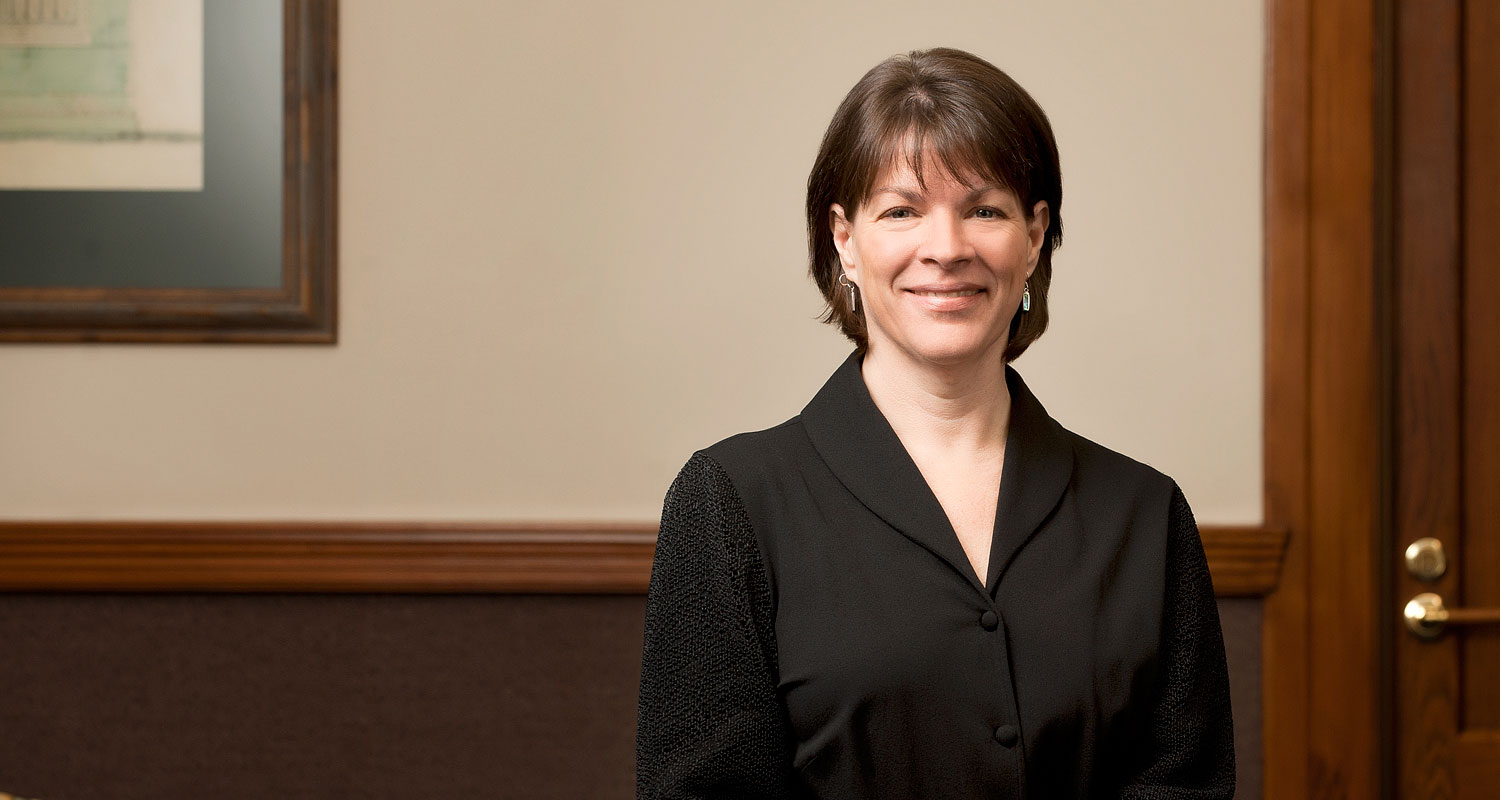
Vice-Chancellor's comment
Vice-Chancellor Professor Harlene Hayne discusses the celebration of women's suffrage in New Zealand and the many firsts for women at Otago.
All across New Zealand, we are celebrating women's suffrage. On 19 September, I participated in the planting of a white camellia in the garden next to Marama Hall. This planting ceremony was organised by the University of Otago Staff Women's Caucus to mark the 125th anniversary of women's right to vote. The white camellia is the symbol of New Zealand women's suffrage; suffragists gave them to their parliamentary supporters to wear in the house; their opponents wore red camellias.
The fight for women's suffrage was not an easy one. The journey began in 1869 when Mary Ann Müller, a British immigrant to New Zealand, published a pamphlet in which she appealed to the men of New Zealand, advocating for women's right to vote. In 1885, the US-based Women's Christian Temperance Union (WCTU) arrived in New Zealand and took up the mantle of women's suffrage. In 1887, Kate Sheppard was appointed as WCTU's National Superintendent for Franchise and Legislation and became a fierce advocate for women's right to vote. Over the next six years, women presented five increasingly larger petitions to Parliament.
The 1893 Women's Suffrage Petition, signed by almost one quarter of the female adult population in New Zealand, was at that time the largest petition of its kind in New Zealand or any other Western country. Dunedin women played a vital role in mobilising support for the petition and more women in the city signed the petition than in any other urban centre. Support for suffrage was strong throughout Otago: 31 per cent of the petition signatories were from our province at a point when the province made up just over 20 per cent of the national population.
Despite fierce opposition, the Bill granting women the right to vote passed by just two votes on 8 September 1893 and was signed by the Governor on 19 September 1893. Two months later, on 28 November 1893, approximately 65 per cent of New Zealand women exercised their right to vote.
The national campaign for women's right to vote in New Zealand mirrored changes that were also taking place here at the University of Otago. I have written briefly about the history of women at Otago in this magazine, but some of these messages bear repeating. Otago was founded in 1869 – the same year that Mary Ann Müller published her pamphlet calling for women's right to vote.
In August 1871, just two months after the first classes were held at Otago, the Council (all men) agreed unanimously to admit women. When they did so, Otago became the first university in Australasia where women could study and graduate with a degree.
Many firsts for women at Otago followed. In 1885, Caroline Freeman became the first woman to graduate from Otago – walking to and from Green Island to study here. We have recently re-named City College – Caroline Freeman College ¬– to acknowledge her pioneering achievement. Earlier this year, we were delighted to celebrate with some of Caroline's descendants, including Georgia Freeman, who is currently a student at Otago.
Otago was the first university in Australasia where women could study law. Ethel Benjamin was the first woman law graduate at Otago and the first woman in the British Empire to appear as counsel in court. Emily Siedeberg-McKinnon was Otago's first woman medical graduate; Winifred Boys-Smith was Otago's (and New Zealand's) first woman professor, and Margaret di Menna was Otago's first woman PhD graduate, receiving her degree in 1954. I had the great privilege of meeting Dr di Menna during my first year as Vice-Chancellor.
Women continue to excel at Otago. Women students have outnumbered men at Otago for many years. Women teachers continue to put us on the map. Otago has taken home the Prime Minister's Supreme Award for tertiary teaching in six of the last seven years. In five of those years, the winner was an Otago woman. This year Faumuina Associate Professor Fa'afetai Sopoaga was the Supreme Award winner. On the night of the awards ceremony, she was joined by three other 2018 national award winners from Otago: Dr Rebecca Bird, Associate Professor Michelle Thompson-Fawcett and Associate Professor Sheila Skeaff – all women. In each academic division we have internationally-recognised women researchers at both the junior and senior level.
Many of our academic staff – both present and past – have shown national and international leadership in teaching and research in fields of particular relevance to women including women's history, early childhood education, women's health and gender studies. Women also serve as outstanding academic leaders at Otago as Heads of Departments, Deans and Deputy Vice-Chancellors. Women also lead a number of our professional services and residential colleges. Sadly, we will soon farewell Otago's first woman Registrar, Jan Flood.
As the University of Otago's first woman Vice-Chancellor, the suffrage celebrations have been very special to me. I am extremely proud to stand on the shoulders of all the amazing women who have gone before me. I highly value our current women staff and students who make important contributions not only to our University, but to our local, national, and international community as well.
Importantly, from our very inception, the advancement of women at Otago has been due not only to strong women, but also to strong men who often had to stand up against their peers to fight for this important cause.
This proud history exemplifies Otago as a university community that has long embraced the opportunity to lead the way in battling for progressive causes. It also sets a clear example of how a University about to celebrate its first 150 years should aspire to act in the future.
Professor Harlene Hayne
Vice-Chancellor, University of Otago